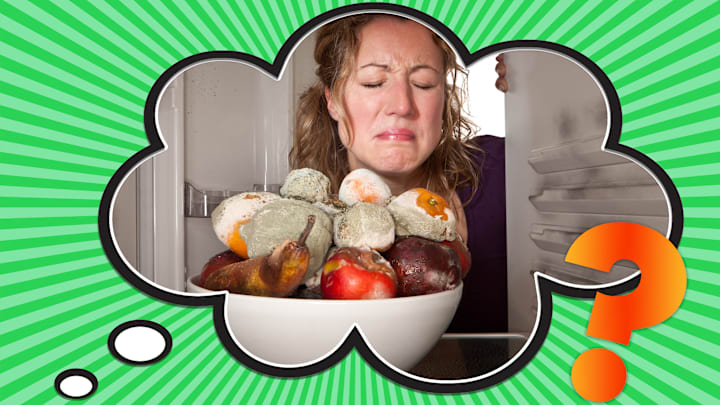The word gross has been in English for hundreds of years. We got it from French, where it means “big, thick, coarse.” It took on a variety of senses in English related to size, including “coarse” (gross grains as opposed to fine), “strikingly obvious” (“grosse as a mountaine,” as Shakespeare put it in Henry IV, Part 1), and “whole” (gross as opposed to net value). It also picked up negative senses like “vulgar,” “crude” (“Grose folke of rude affection Dronkerdes. Lubbers, knaues” from the 16th century), or “ignorant” (“a grosse unlettered people” from 1833). Uncivilized and indecent behavior was called “gross.” Low-quality food was called “gross.” And history is filled with gross abuses, gross misconceptions, gross perfidy, and gross folly. From there it’s not a big jump to the current sense of “disgusting.” There’s always been something repulsive, or at least unsavory, in the word gross.
Still, “Ew! That is so gross!” has a very modern ring to it. It feels like a very different word from the one they were using 200 years ago. In contrast, a word like disgusting feels essentially the same. So what happened to gross? What separates the gross of today from the gross of the past?
Gross did not undergo a big change in meaning, but it did undergo a big change in context. In the late 20th century, young people started to use it a lot—like, a lot a lot. So much so that older people noticed it, and didn’t like it. As one critic said in a 1971 issue of The Saturday Review, “Gross has always meant something coarse and vulgar. But as used by the teens, it runs the gamut of awfulness from homework to something the cat contributed to ecology.” In other words, gross became slang.
At first, some time in the 1950s, it became an in-group term, one of a number of words (including great, the greatest, the most) that, according to a 1959 article about university slang, were “either complimentary or derogatory depending on how they are said.”
It’s hard to image anyone today using gross in the complimentary way. It’s also strange to learn that, according a 1973 article, gross out could mean “wild and shocking” (“That was a real gross-out party”) and, as author Hugh Rawson wrote in Wicked Words: A Treasury of Curses, Insults, Put-Downs, and Other Formerly Unprintable Terms from Anglo-Saxon Times to the Present could also be used as a noun (“Fred is a real gross-out”). The early slang meaning of gross was broader than it is now.
The development of the verb form to gross out in the ’60s and ’70s (probably on analogy with cop out and freak out) helped contribute a sense of newness to the word and made it seem even more slangy. By the ’80s it was a staple of “valley girl” speak, so often repeated, mocked, emulated, and imitated that it spread far beyond the teen world it came from. Its sense narrowed into a succinct judgment of visceral disgust, capturing the colorful bodily emotion of gag me with a spoon but in a less wordy way. Gross was always there, but young people, needing a more compact package to deliver their disdain, fixed it up and made it grosser.
Now that you know how gross came to its current meaning, find out why we find words like moist really, really gross.
A version of this story ran in 2015; it has been updated for 20
